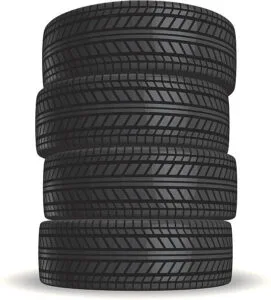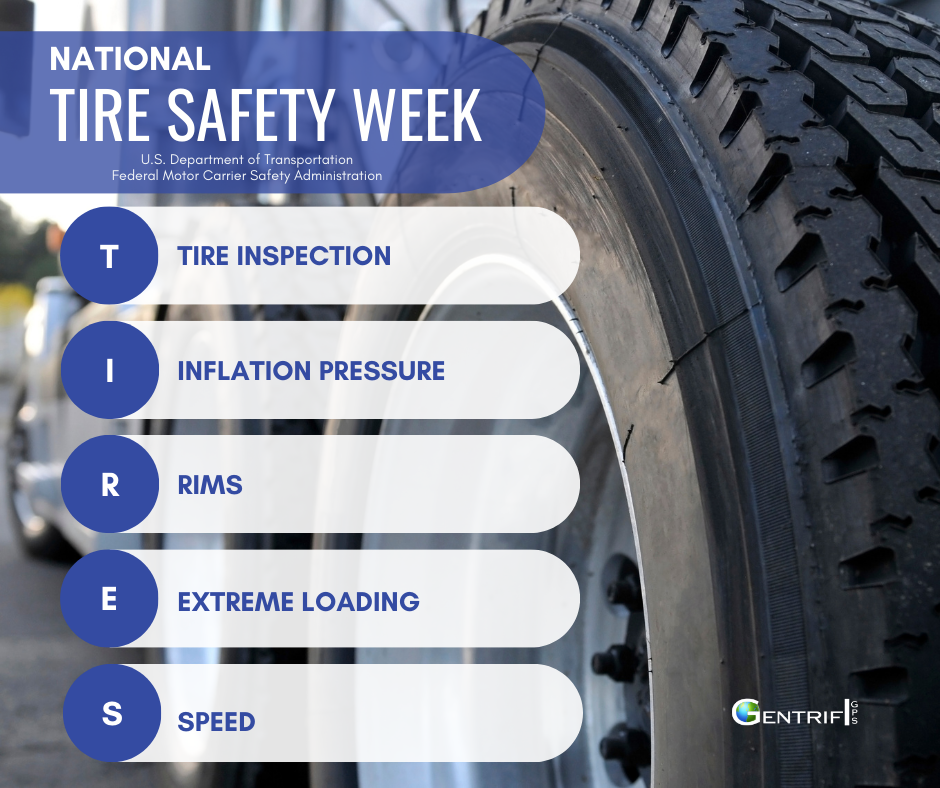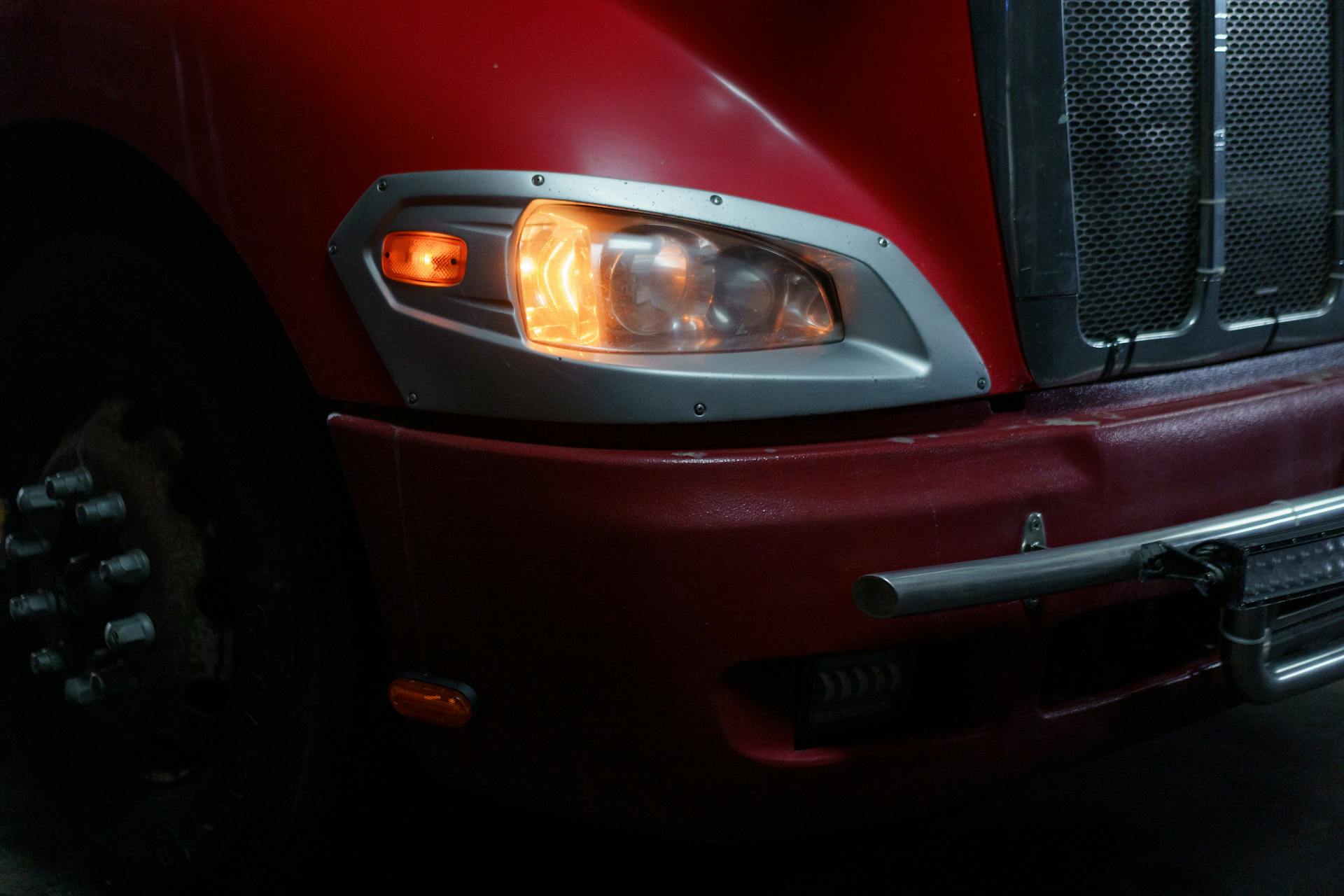Keep It Rolling: Best Ways To Ensure The Life Of Your Tires

Next week is National Tire Safety Week, the U.S. Tire Manufacturers Association’s (USTMSA) annual campaign to educate drivers about tire care, safety, and maintenance, a very important aspect of road safety. Tire safety is important for all drivers on the road, but especially for those that operate commercial vehicles.
For commercial drivers, who spend long hours on the road driving heavy vehicles, proper tire care and training are crucial to ensuring that your fleet gets the most value out of its tires and is operating as safely as possible. Improper tire maintenance can lead to issues such as increased fuel consumption, low tire pressure, flat tires, tire failure, and ultimately crashes. The National Highway Traffic Safety Administration (NHTSA) reports that roughly 2% of all crashes are caused by issues with the vehicles itself and of that 2%, 35% were tire-related crashes. Most of these tire-related crashes can actually be avoided completely with proper tire maintenance and training. Check out our top tips on ways to maintain your vehicle’s tires and keep your fleet running safely and efficiently.
Check Pressure Regularly
Maintaining proper tire pressure is the first way to ensure that your tires are in good health. Improper tire pressure affects braking, handling, and even fuel consumption. Having an under-inflated tire can increase braking distances, which slows down response time. An under-inflated tire also contributes to higher fuel consumption. The U.S. Department of Transportation found that under-inflated tires lower gas mileage by 2% for every psi drop. If properly monitored, fleets can save around 2-3 cents per gallon by having tires inflated to their correct psi, which for large fleets the savings can add up. Ensure that your drivers check each tire’s psi before and after every trip. It is best to check the pressure when the tire is “cold” or before it is heated up on the road in order to get the most accurate reading.
Tools like a Tire Pressure Monitoring System (TPMS) provide accurate tire pressure readings for all tires on a vehicle. TPMS is helpful for fleets that have trailer tractors as vehicles can only provide readings on tires that are connected to the cab. This not only simplifies the process for drivers but a TPMS provides coverage and insight into every tire, alerting drivers and fleet managers if any issue is detected.
Inspect Tires For Damage
To ensure that your tires are ready for long hauls, have your drivers visually inspect them for any damage. Damage to look for includes cracking, bulging, cuts, punctures, inadequate tread depth, and foreign objects. During a recent International Roadcheck Blitz, the Commercial Vehicle Safety Alliance (CVSA) placed 19% of trucks inspected, out-of-service due to tire and wheel violations. One common tire out-of-service violation is inadequate tread depth. The Federal Motor Carrier Safety Administration (FMCSA) regulates that steer tires must have a minimum depth of 4/32 of an inch and all other tires must have a minimum depth of 2/32 of an inch. To make sure that your tires are in regulation you can purchase tread depth gauges for under a dollar for your drivers to keep on hand.
Provide Trainings For Your Drivers
Even when you take proper precautions to prevent tire failure, sometimes there are no ways to avoid it. Providing regular safety trainings for your drivers will ensure that they know what to do in the event of tire failure. During trainings show your drivers exactly what to look for during tire inspections, and share what is needed to comply with tire regulations. Have a simple process for drivers to report issues with tires and ways to arrange repairs. During onboarding and annual trainings, make sure that your drivers have access to a TPMS or a commercial grade pressure and tread depth gauge. Another good tool to consider providing your drivers with are air hoses, that hook up to the truck’s air so that drivers can add air to their tires when pressure is low. With proper driver training fleets can reduce unexpected tire issues.
Keep Up With Routine Maintenance
It is generally recommended for over-the-road trucks to get serviced every 3000 miles. Ensure that your fleet does not miss routine checks as mechanics can detect issues with tires that drivers may not be aware of. Fleet managers can also consider adding platforms that run diagnostic tests on vehicles. Systems like Omnitracs RNT can run diagnostics and even schedule maintenance with verified mechanics. Keeping up with regular maintenance is a surefire way to keep your vehicle running and tires in good health.
Maintaining your fleet’s tires is critical for safe driving and ensuring the longevity of your tires. By following these simple tips, you can keep your tires in top condition and reduce the risk of accidents caused by tire failures. National Tire Safety Week serves as your reminder to prioritize tire maintenance and keep your vehicles on the road.







